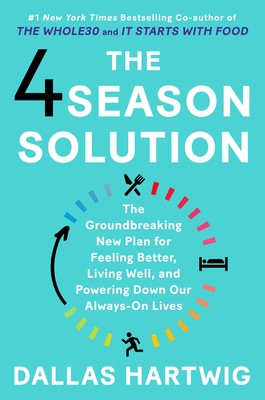This week we’re talking about biometric devices — the appeal those fascinating little gadgets hold and the distractions they can present.
From Fitbits and Apple Watches to Muse Headbands and Oura Rings, we evaluate the ways knowing more about our own biomarkers and daily patterns can help us become better stewards of our bodies and minds. We also explore how increasing use and dependence on these devices is affecting us all, and how their trending adoption is influencing our culture.
Finally, we offer you some experiments to help you become more conscious of the signals your body is sending you all of the time — and whether you are more likely to benefit from embracing a new biometric device, or just becoming a better tracker of your own body’s readings.
“Biometric Devices” Episode Highlights
- What we mean by biometric technology — heart rate and fitness monitors, sleep trackers, glucose scanners, but also fingerprint readers, facial recognition, etc.
- Pilar’s and Dallas’s personal history with health-related biometric devices
- The benefits of being able to see in real-time — and believe — what’s happening in the body
- The diminishing returns most of us experience over time from devices as we become more familiar with the correlation of objective metrics and our own subjective sensations
- How biometric devices may interfere with or impair our ability to develop crucial self perceptions
- Pilar’s experience with the Oura Ring, and the surprising range of data this device can track and report on (note: this is not a paid advertisement or testimonial — just Pilar’s two cents)
- Challenging the idea that more consumer technology is the solution to our health problems
- How data from biometric devices can be beneficial, and when it can be detrimental

Try this low tech self-monitoring technique: While at rest, find your pulse on your neck or wrist, count your heartbeats for 30 seconds and write down the number. Next, get your heart rate up by moving quickly for 30 seconds. Stop, immediately count your heartbeats again for 30 seconds and write the number down next to your resting heart rate. Notice the difference between the two numbers, witnessing how quickly your body responds to vigorous exercise, and how your body feels. Are you warmer? What is your energy level? Are you judging yourself for tiring or getting winded? Note that all of this information offers insight into how your body-mind is functioning today, and it can be had for free.
If you have a biometric device you rarely or never use, reflect on whether you have a desire to know more about your body and what you want to know. Does your device do what you want it to do? If it doesn’t, or if you don’t yet have a biometric device but want (and can afford) one, go ahead and try one out — just don’t count on it changing your life.

When you have a moment to pause, maybe upon waking or right before bed, take note of your general sense of well-being. How do you feel? What is your energy level, your mood? Do you feel better than yesterday or last week? Are you trending in a positive direction, and are the choices you’re making working for you? Regularly checking in with your body can help you develop more nuanced self awareness without needing data or scores to back it up. If a biometric device helps you develop this self awareness, use it.
Resources
- From Experience Life magazine: “Can Fitness Trackers Help Detect Illness?”; “New Tech Tools for Mental Health”
- “Fitbits of the Future: What’s Next in Biometric Data for Health” (via Aetna)
- The Oura Ring website
- The Muse Headband website
Order Our Books!
You’ve heard us talking about them for years now. Wouldn’t you like to among the very first to read them? Both are on shelves now!

ORDER FROM AN INDEPENDENT BOOKSELLER
ORDER FROM AMAZON

ORDER FROM AN INDEPENDENT BOOKSELLER
ORDER FROM AMAZON
Plus …
Sign up for The Living Experiment newsletter so you can stay up to date with us, and receive notifications when new episodes are released.
Subscribe to The Living Experiment on Apple Podcasts to have fresh episodes delivered to your podcast feed as soon as they’re released.
Share the Love!
Have you told your friends and family about The Living Experiment? If you dig the podcast, please share it! And leave a review at Apple Podcasts or wherever you subscribe. Every recommendation from you means a lot!
We’d also love to have you connect with us on Facebook. Tell us about your experiments, and share your thoughts, stories and reflections there.